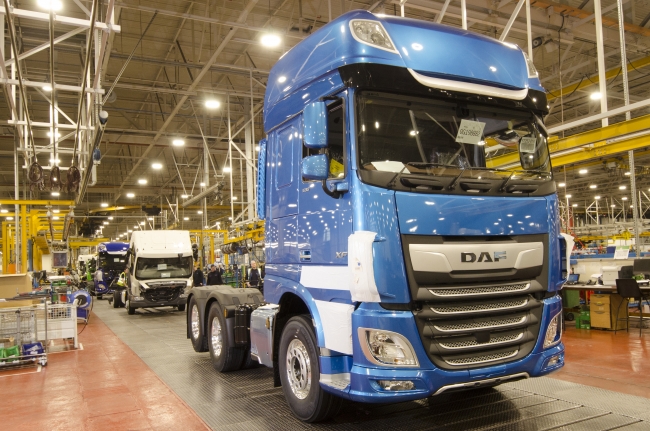2 minute read - 28th October 2022
Commercial vehicle production charge continues
UK commercial vehicle production grew yet again in September, up 53.6% with 11,979 vans, buses, trucks, coaches and taxis rolling off British factory lines, according to the latest figures released by the Society of Motor Manufacturers and Traders (SMMT). September output levels reached their highest since 2011, marking nine months of consecutive growth in reaction to robust demand for UK-made vans at home and in key export markets.
September’s output is the highest of any month so far this year, driven by strong orders from overseas markets, rising significantly by 70.4% to 7,333 units, with 95% of these destined for the EU. Production for the UK also grew, up 32.9% on the same month last year, to 4,646 units.
Year-to-date, overall production volumes are up 50.8% establishing the best first nine months performance since 2012, with 76,807 units manufactured in Britain since January. This is 21.5% higher than the pre-pandemic five-year average and 44.6% above performance in 2019, a testament to British commercial vehicle manufacturers who have worked hard in the face of multiple challenges, including semiconductor supply shortages and economic headwinds, to deliver across markets.

UK commercial vehicle production grew 53.6% in September, with 11,979 vehicles leaving British factories – the ninth consecutive month of growth and the highest September performance since 2011 / Picture: DAF Trucks
In comparison, figures released show UK car manufacturing output had declined by -6.0% in September, following four consecutive months of growth. SMMT said output has again been restricted by severe supply chain issues affecting manufacturers, driving volumes down. Recent analysis has confirmed the increasingly important role of electrified vehicle production to the UK economy, especially the value of exports.
Mike Hawes, SMMT chief executive, said: “In a sector that continues to face significant challenges, Britain’s commercial vehicle manufacturers have reacted with determination to deliver the best September in more than a decade. Significant demand from overseas markets not only demonstrates the appeal of UK-built CVs, but shows the critical role this sector plays in powering the UK economy. Long-term growth, however, will depend on operator confidence and a competitive business framework for manufacturers, so the new government must take a long-term approach, addressing high energy prices and other cost impacts that hold back investment.”

Graphic & data courtesy of SMMT